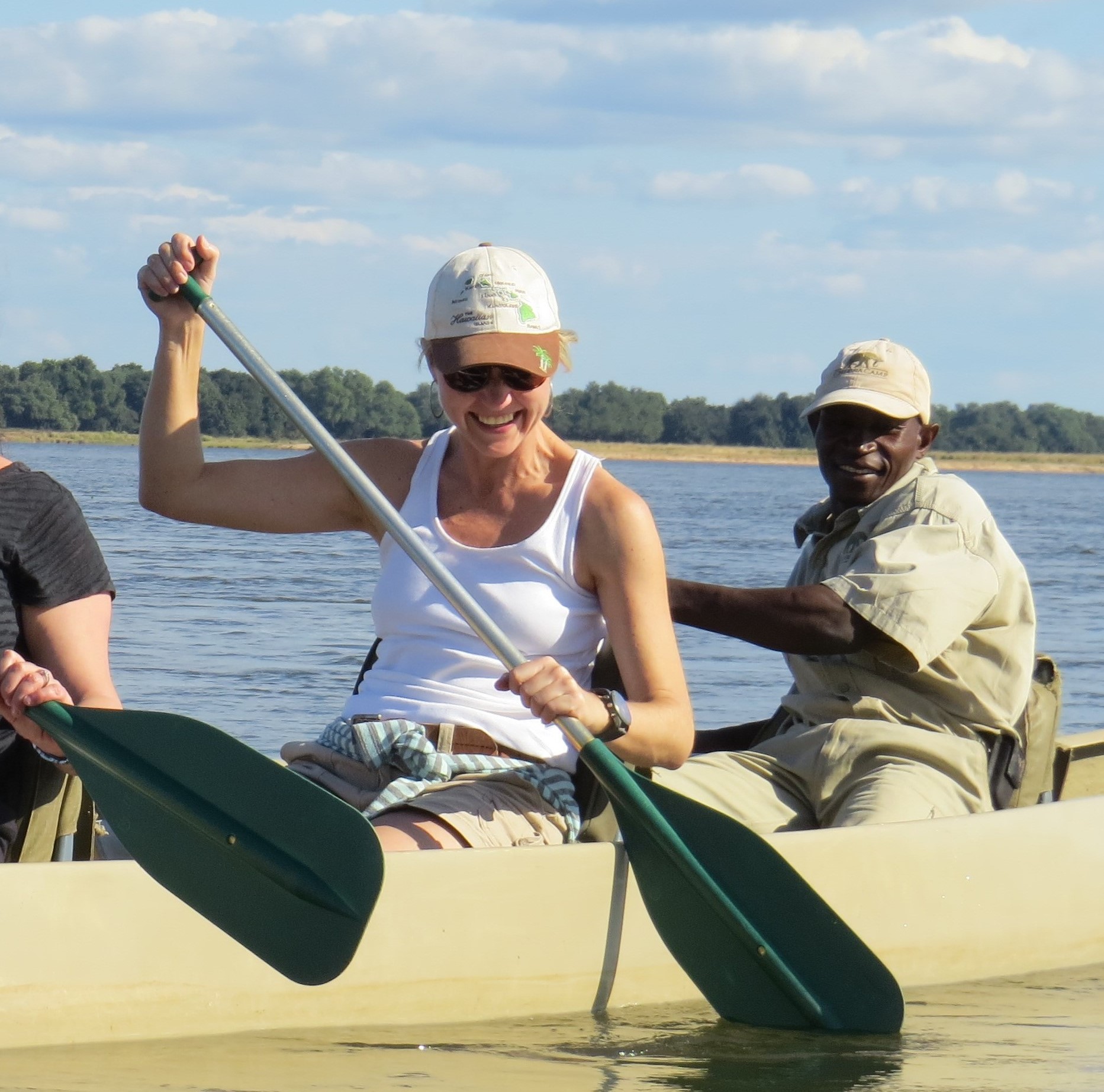WHAT IS THE RISK OF GETTING MALARIA ON SAFARI?
Many clients ask us about taking anti-malaria medication. As there is no 100% right or wrong answer, we’ve broken down the information so you can make the decision that makes sense for you and your personal risk profile.
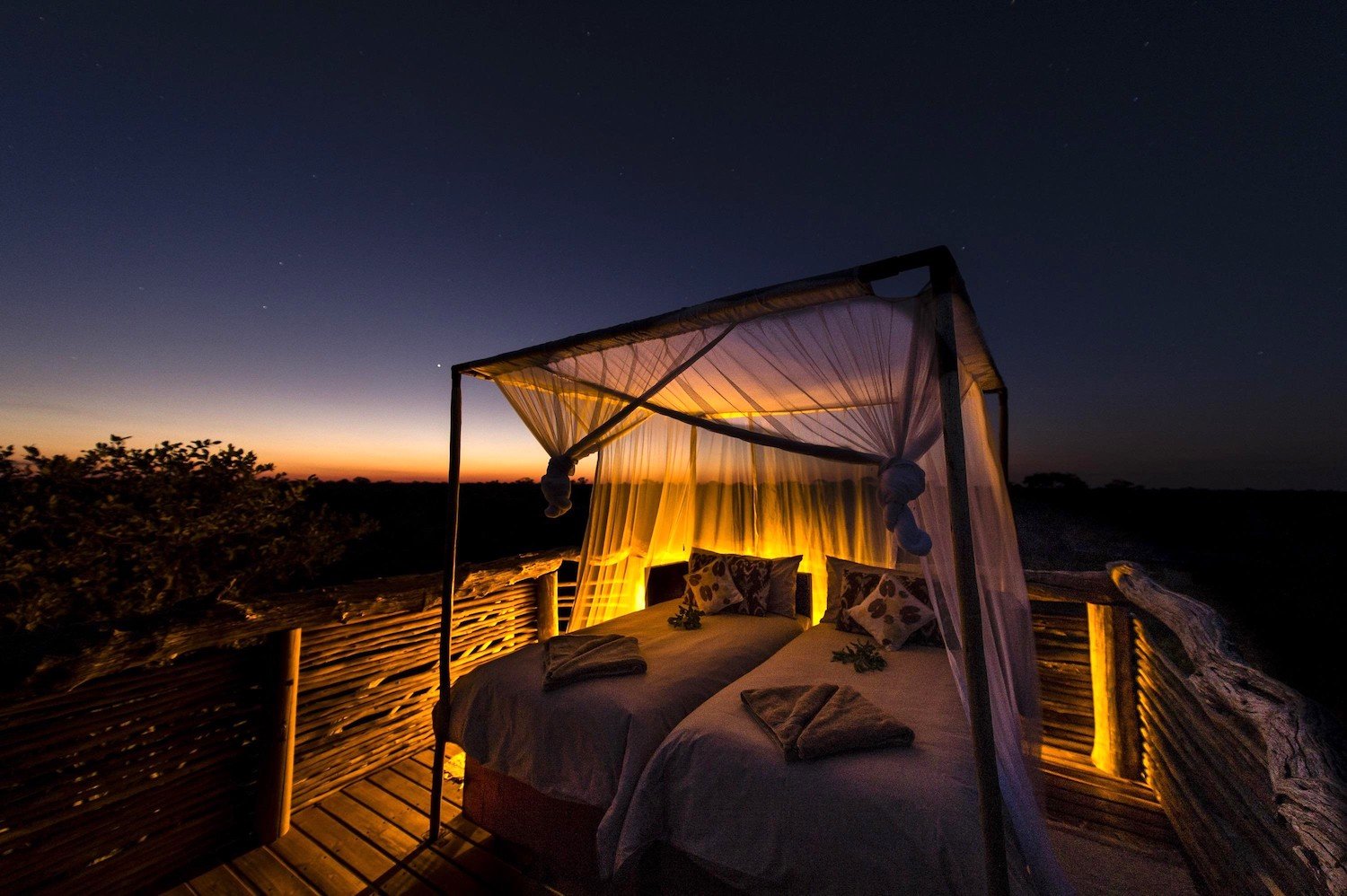
What’s covered in this guide
Explore the highlights of this post with ease by using the table of contents below to navigate to sections of interest.
What is malaria?
Malaria is a parasitic infection that enters the bloodstream via the bite of an infected female Anopheles mosquito. Within seven to 30 days (but sometimes up to a year later), initial symptoms similar to flu will present themselves like headaches, chills and fever.
If left untreated, malaria can lead to serious illness and even death. That said, treatment is very effective and widely available.
How do you get malaria?
In order to contract malaria, three things have to be present:
- Stagnant water for breeding mosquitoes
- A human already infected with malaria
- A female Anopheles mosquito that bites the infected person and then someone else
If any of those factors are absent, malaria will not be present. The female Anopheles mozzie doesn’t cause malaria; she merely carries it from one person to another. If no-one she bites has malaria, the disease cannot be spread.
For this reason – the need for an infected person to be present – malaria is most prevalent in rural villages with low access to treatment and minimal prevention mechanisms.
In addition, people who live in malaria areas and frequently suffer repeated exposure to the parasite develop partial immunity and will not suffer severe symptoms. This is why older villagers who have spent their entire lives in malaria zones survive. It is not always fatal and modern prophylactics and treatments are extremely effective at preventing and curing it.
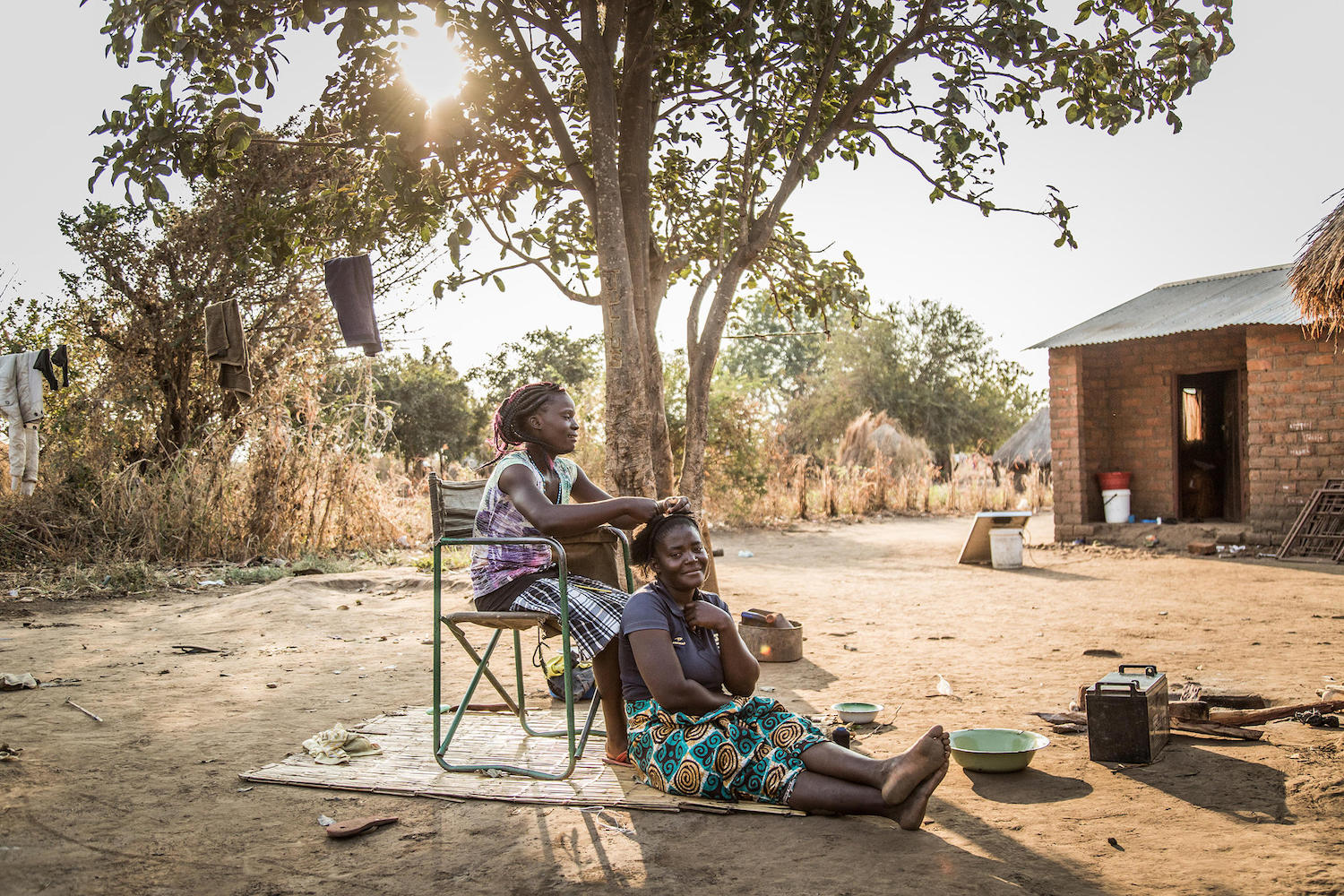
Risk is highest in villages during the rainy Green Season summer.
Why is the risk of contracting malaria on safari low?
The risk is very low because the chance of someone in the lodge or camp already having malaria is low. If a staff member is ill, they will be treated and not allowed to work. The only time they will likely become infected is if they travel back to their isolated village in the rainy season and are bitten by an infected mosquito.
Even if they are sick in the lodge, the only way the disease can be passed on is via a female Anopheles – no other species will do so. Mosquitoes only breed in hot conditions with water around. With proper treatment, malaria symptoms soon clear up and a patient is generally cured within two weeks.
Safaris are considered very safe because:
- Safari high season is the dry winter when there is very little water around.
- Mosquitoes do not breed in cold weather.
- Lodges and camps are built far from villages.
- Beds have mosquito nets.
- Staff sometimes spray rooms with insect repellent while you are having dinner (you can opt out if you prefer not to have your tent sprayed).
- Guests are expected to wear trousers, socks and long-sleeved shirts in the evening when mosquitoes become active.
- Blue and black clothes are not recommended as there is some evidence they attract insects like mozzies (and tsetse flies). This is why we recommend neutral colours like green, grey, brown and khaki as well as loose cotton that is harder for mozzies to penetrate.
- Any staff who show symptoms will not be allowed to work (and will be treated promptly). Many staff also have some immunity if they grew up in malaria areas.
How can I reduce my risk even further?
If you want the lowest possible risk, then there are several steps you can take:
- Choose a malaria-free zone. Many places in Africa have largely eradicated malaria and safaris there are perfectly safe. Options include all of South Africa and Namibia as well as low-risk parts of Botswana, Tanzania and Kenya.
- Take prophylactics. Speak to your doctor or travel clinic about preventative medication before you travel including possible side-effects (especially if you are pregnant or intend to go scuba diving after your safari).
- Travel in dry season (generally July to October).
- Use insect repellent.
- Wear clothes that cover your feet, legs, arms, back and chest at night when mozzies are most active (including long pyjamas).
- Keep the doors and windows to your tent closed at all times (this is standard practice).
- Avoid camps near lakes, dams, wetlands or waterholes.
- Do not participate in school tours or village visits.
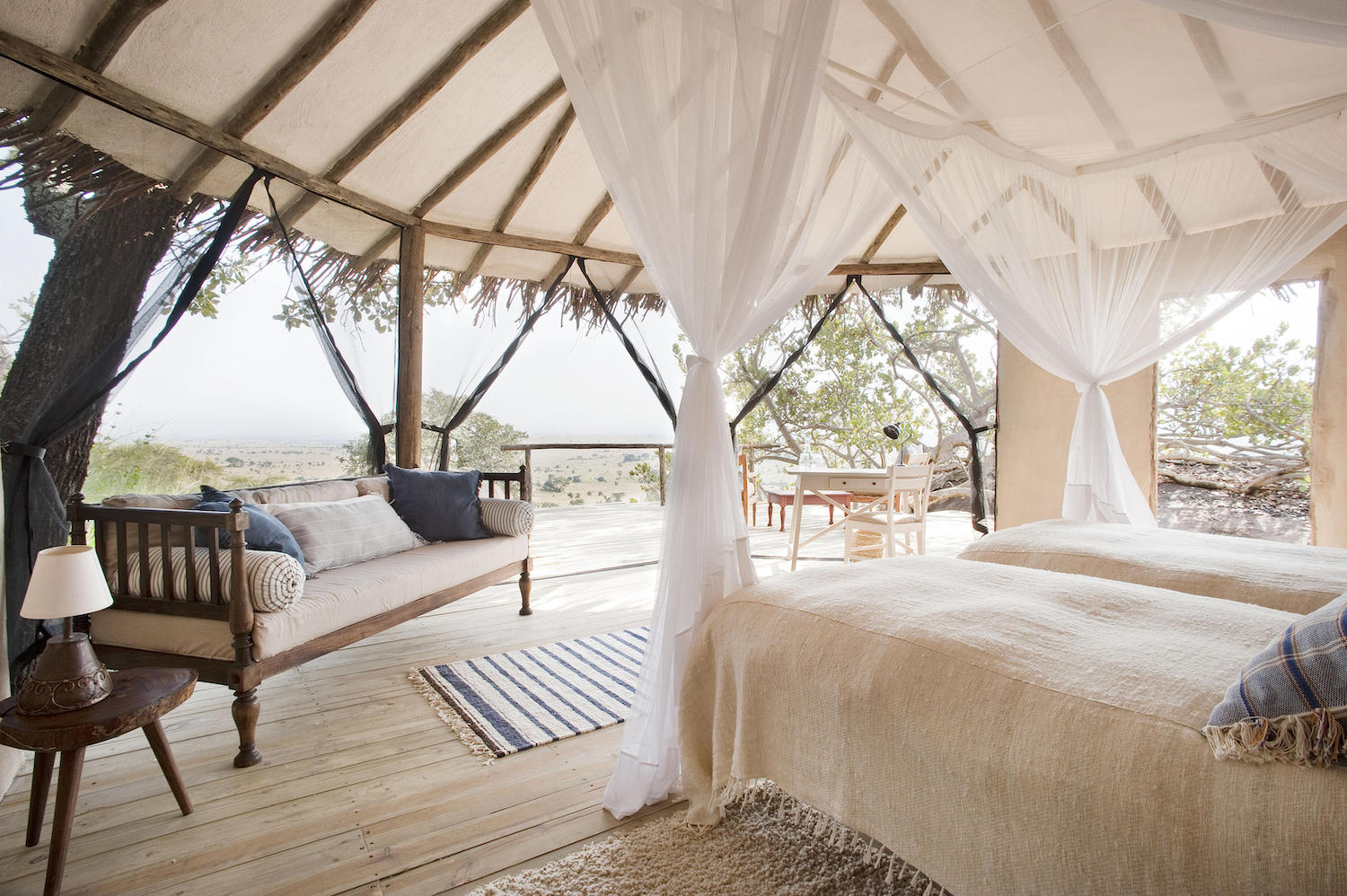
Mozzie nets look romantic but have an important practical function so be sure to use them.
Should I take anti-malaria medication?
This is a personal choice to be discussed with your doctor. At Biggestleaf Travel, we all make the decision for ourselves. There is a wide range of opinions and only you know how comfortable you feel with your choice.
Consider the following:
- How high the risk really is
- If you have other medical conditions or are immunocompromised
- Whether you would be affected by any side-effects
- If there are contra-indications with other medications you take
- What your travel insurance covers or doesn’t cover should you fall ill
- Who would care for you if you did get sick
- What you have planned for after your safari (returning to work, continuing your journey etc)
In general, we consider the risk to be low if you are following the guidelines. If you are spending extended amounts of time in very rural villages during the rainy season, then we believe the risk is much higher and precautions must be taken. If you are in doubt, it is best to take prophylactics and have a stress-free vacation.
PS It is a myth that that several G&Ts will ward off mosquito bites! In the old days, tonic was made with real quinine that had some effect against mozzies but modern tonic is quinine-free. We’re on to that excuse for knocking back the gins at sundowners…!
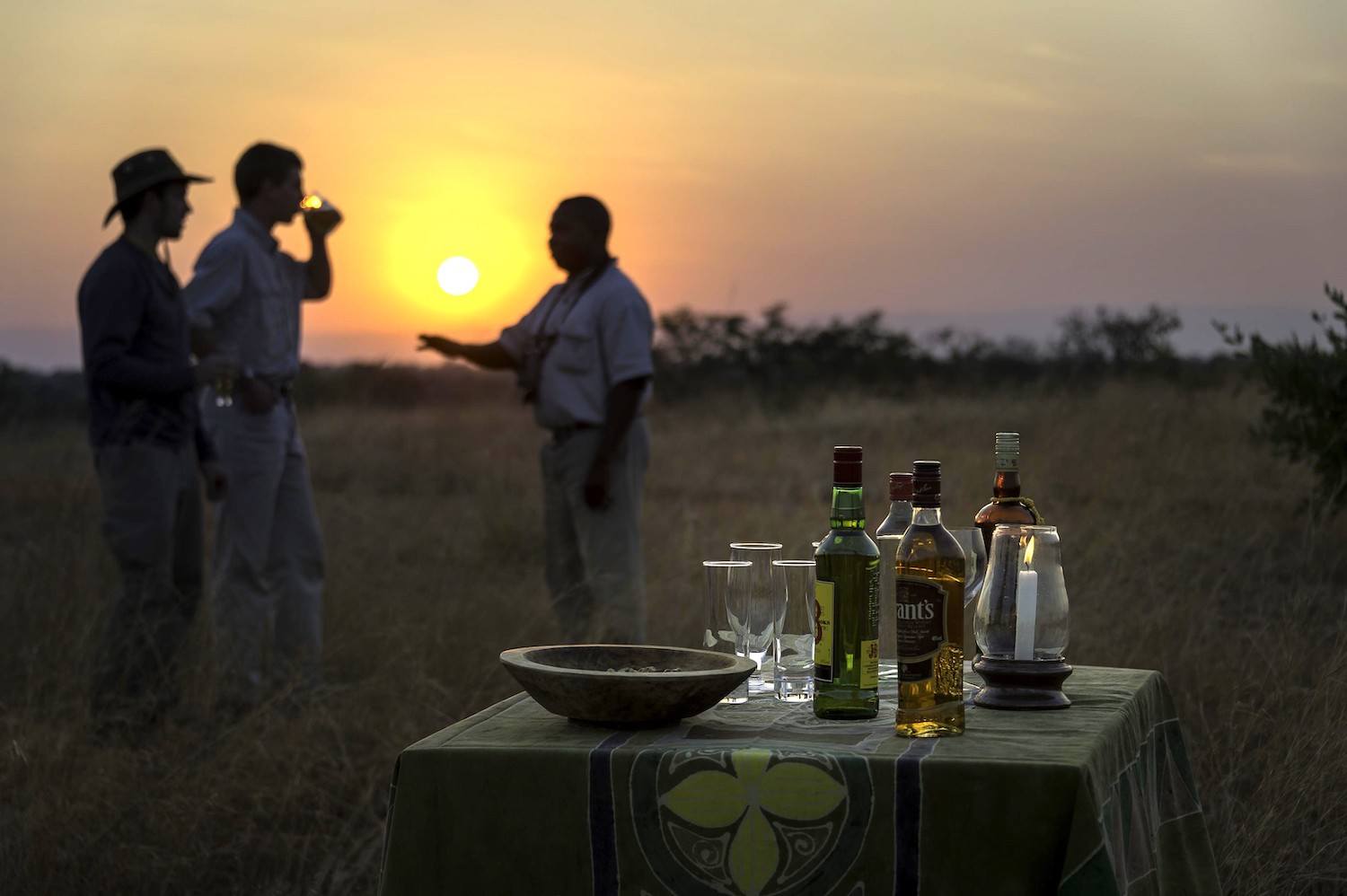
G&Ts are tasty but won’t prevent malaria! After sunset, wear long sleeves and trousers. but have an important practical function so be sure to use them.
PHOTO CREDITS The Bushcamp Company | Khwai Private Reserve Skybeds | Lamai Safari Camp | Tafika Camp

